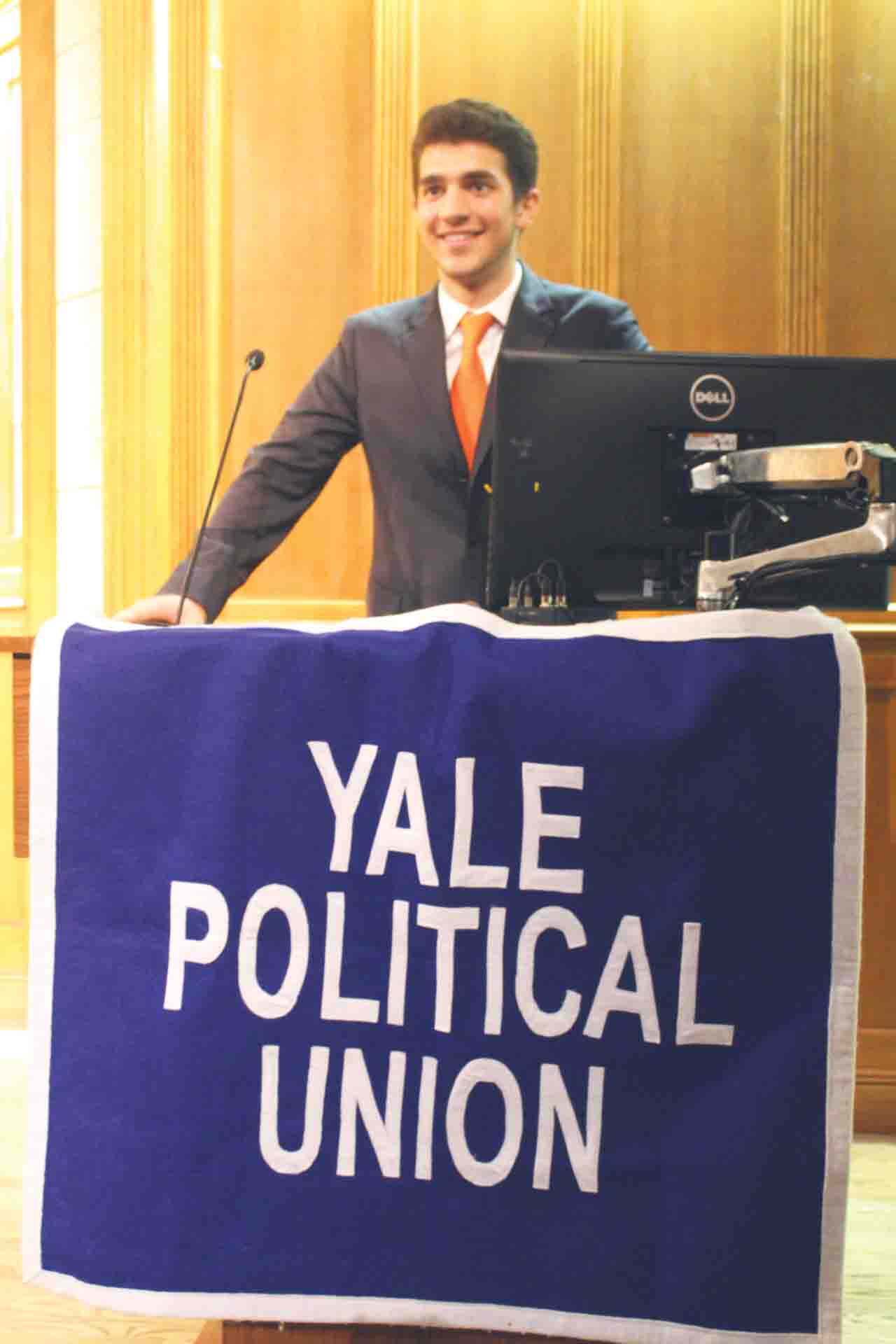
Forget “microcosm of the Yale community” — Ward 1 Alder Hacibey Catalbasoglu ’19 wants to abandon the residential college system and turn Yale’s signature Gothic dormitories into taxable, mixed-use property.
Catalbasoglu spoke in favor of the resolution “Resolved: Abolish Yale Housing,” before an audience of about 150 students, as the invited speaker at the Yale Political Union debate in Sudler Hall on Tuesday night. Recalling his personal experiences witnessing overdoses on the New Haven Green and within his own family, he described the weakness of City Hall’s finances and lamented the lack of support the city receives from the University.
“Yale and New Haven rise and fall together,” Catalbasoglu said in his speech. “We must find ways to lift them up together, and abolishing residential colleges is a step in that direction.”
Catalbasoglu proposed ditching the college system and transforming the colleges into modern, renovated dorms that also house businesses, which would allow New Haven to collect property taxes. After the event, he clarified his remarks in an interview with the News, saying he does now know whether it would be necessary to abolish the entire college system in order to turn the buildings into mixed-use properties.
But regardless of the connection between the two proposals, Catalbasoglu said in his speech that he supports abandoning the colleges because most Yalies make friends outside of their assigned colleges, rendering the system “irrelevant.”
The bulk of his speech, however, focused on the financial benefits New Haven would accrue from reclassifying the college as mixed-use properties.
According to Catalbasoglu, the city of New Haven supported the University financially during the first decades after its relocation to the Elm City in the early 1700s. But now the roles are reversed. With the city on the verge of bankruptcy, he said, Yale’s endowment remains roughly equivalent to the GDPs of countries like Zambia and Estonia.
The current Yale endowment is $27.2 billion, according to the Yale Investments Office, while Zambia’s GDP is $25.81 billion in 2017, according to the website Trading Economics.
In spite of Yale’s immense wealth, residential colleges are exempt from property taxes because they are educational buildings. Many other colleges, like Dartmouth, pay property taxes on their residential buildings. But Yale holds residential college seminars in its dormitories, which grants them the status of educational buildings.
At the debate, Catalbasoglu said the city misses out on about $107 million in property taxes on University buildings each year, which would comprise about 20 percent of the city’s annual budget. Instead, Yale makes an annual donation of around $7.5 million to City Hall.
At the end of the speech, audience members posed questions to the speaker, primarily about the impact that releasing thousands of undergraduates into the New Haven housing market would have on affordable housing, the displacement of long-time city residents and the process of gentrification in the Elm City. (Catalbasoglu told the News after the event that he would still want Yale students to live in the dorms rather than “disperse within New Haven.”)
After the Q&A section concluded, members of the YPU’s seven political parties spoke in response to the resolution, alternating between the affirmative and the negative, rather than specifically addressing Catalbasoglu’s proposal.
“If dear daddy Salovey were to abolish Yale housing, thousands of students would be unleashed” into the city, “and housing costs would increase astronomically,” said Ian Moreau ’21, a member of the YPU’s Liberal Party.
Speaking in favor of the resolution, Party of the Right member Quinn Shepherd ’19 lamented that the residential college system “constantly infantilizes” Yale students, while also creating an “underclass of service-oriented workers” employed in residential college dining halls and facilities.
According to Yale data, about 26.2 percent of juniors and 39.8 percent of seniors lived in non-Yale housing, compared to roughly 28 percent of juniors and 41.5 percent of seniors in the previous year, according to a Yale College Council report.
A recent News survey of the class of 2022 found that only 5 percent of first years intend to move off-campus.
Nathalie Bussemaker | nathalie.bussemaker@yale.edu







